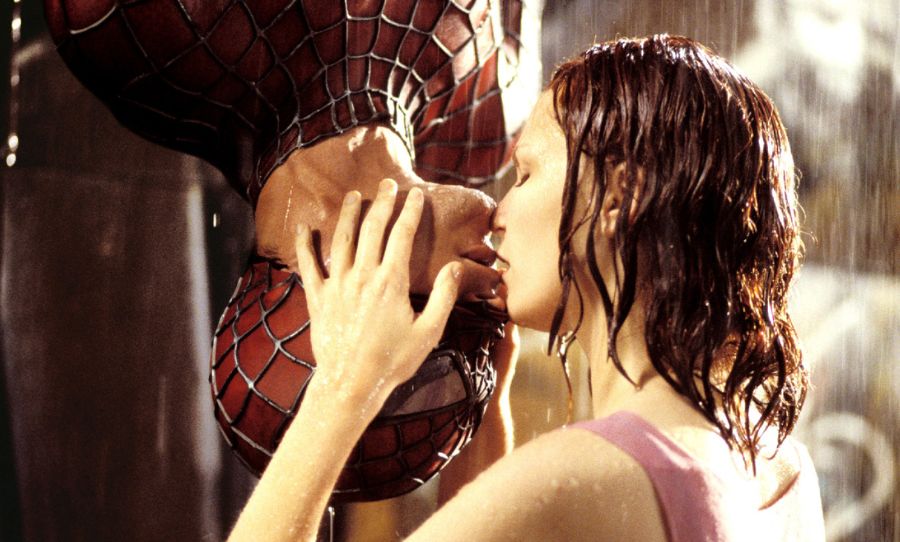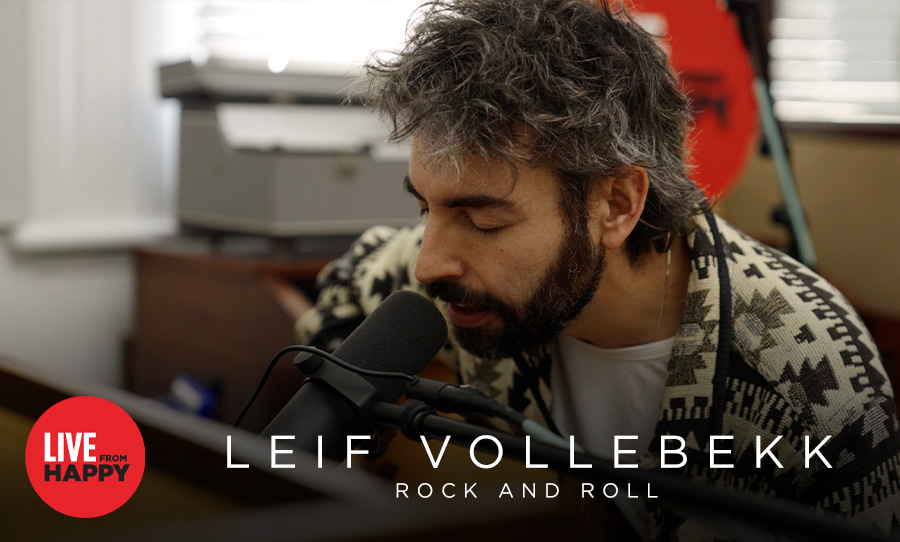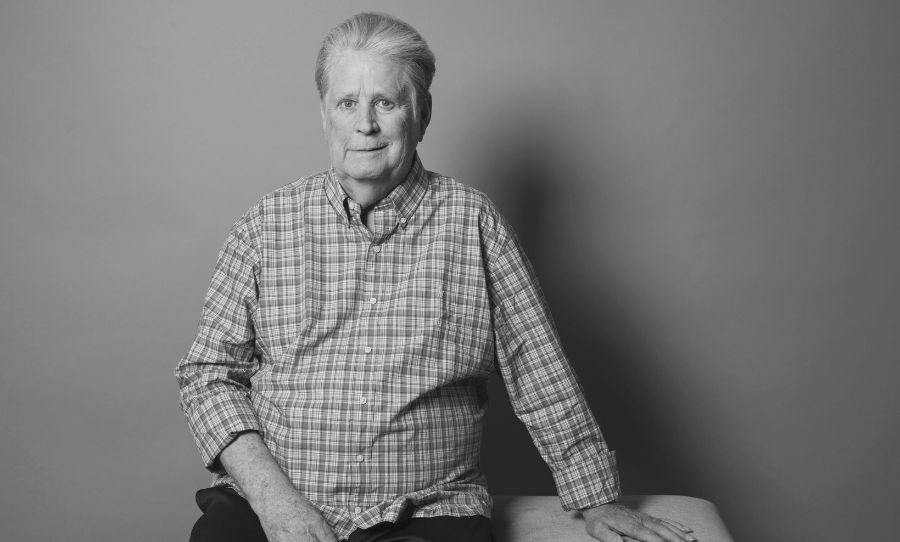When MGMT dropped the first single off their new album back in October last year, it seemed that something within them had changed. I wouldn’t go as far to say they were back with a vengeance – that’s really not their style. But they were back with something, that’s for sure. Let’s call it self-possession.
Little Dark Age – the album that is – came out a few months later, and it was clear that this was no anomaly. The record is fucking excellent – peppered with the same pop hooks that were there during the band’s explosive genesis, brooding gothic undertones, and an intriguing exploration of electronica. Four albums in and it feels like they have well and truly hit their stride.
Last weekend the band made their triumphant return to Splendour In The Grass (the last time they appeared was back in 2009), where they played a career-spanning set to an absolutely packed Amphitheatre Stage.
We sat down with Ben and Andrew from the band backstage at the festival to chat surfing, sequencers, and the joys of working with their mama duck, Dave Fridmann.

We caught up with MGMT backstage at Splendour to chat surfing, sequencers, and the joys of working with producer extraordinaire, Dave Fridmann.
HAPPY: So I hear you guys are into surfing.
BEN: He is [pointing at Andrew]! I’ve been twice…
HAPPY: Have you have a chance to get in the water here?
ANDREW: Yeah I went yesterday, but we didn’t get the best conditions.
HAPPY: Where’d you go?
ANDREW: Uhh, a place called Fingal Head. It’s near the mouth of that river that flows out near Snapper Rocks. Just north of here a little bit.
HAPPY: Where do you surf back in the States?
ANDREW: Mostly near my home at Rockaway Beach. And when I go out to L.A I surf out there a little bit.
HAPPY: Nice. So I’ve been listening to the new record a lot. It blew me away, particularly the electronic elements that you honed in on. Was there something in particular that really drove this direction?
ANDREW: The Cirklon.
BEN: Yeah, there’s this thing, it’s a sequencer, called the Cirklon that we used to do a lot of sequencing of MIDI instruments.
ANDREW: Like multiple tracks of MIDI, all with this one thing – that was important.
BEN: I guess that was kind of different for us. Like on the first record, the sequenced stuff we did was all on a computer, then we would play analog synths live over that stuff. But this time we did a lot of things that would be impossible to play like that – like a whole room full of synths being controlled by this box. It was a lot of fun.
HAPPY: Were you guys writing together a lot for this record? Five years seems like quite a long time…
ANDREW: Well it was five years between albums, but it was really about a year of writing and recording for this one. We took time off and focused on some other stuff besides music.
HAPPY: What other stuff?
ANDREW: Ben moved.
BEN: Yeah I moved to L.A. and remodelled my house…
HAPPY: So life admin?
ANDREW: Yeah, just life.
BEN: Human activities.
HAPPY: Have you had a chance to do that in the last 10 years?
ANDREW: That’s was us doing it, that was it, those couple of years. It was definitely needed.
BEN: I think it was a big part of being able to come at the album-making process with a clear head. And I think, in a way, it was kind of happiest we’d ever been while working on a record, even though we were dealing with a lot of darker subject matter in the songs. We just had a really good time, enjoying the whole process.
HAPPY: That shines through a lot. It sounds like you guys are having fun.
ANDREW: Yeah we ended up working more quickly and didn’t filter ourselves as much as we have in the past.
HAPPY: I like that you guys keep coming back to work with Dave Fridmann. What’s the relationship there?
BEN: I think it’s really important – I mean the fact that we’ve done four records with him now – just having a third party there that we trust. We completely trust his opinion about pretty much everything. And just being able to work independently on something and then bring him a mostly-completed idea and filter that through his way of looking at the big picture or his perspective that he didn’t necessarily work on from the beginning is really important.
ANDREW: I think it’s like, when there’s ducklings that don’t have their mother and they get attached to a dog or something… We had just signed to Columbia [to release Oracular Spectacular] and we really had no idea, and he really… the creative match was always strong, but he also taught us a lot through his experience with labels, and that was really important.
HAPPY: And you worked with someone else on this record too right? His name is escaping me…
BEN: Patrick Wimberly.
HAPPY: That’s it. Is that the first time you’d worked with another producer?
BEN: Yeah. He’s actually been a friend of ours for a long time. When I first moved to New York and we were just starting to work on our first record, we actually met his band Chairlift because we answered a Craigslist post and we ended up sharing a rehearsal space with him. That’s how we met. And we’ve been friends and fans of each other’s music for a long time, so he was a pretty natural choice. When we first started recording the album, we realised it was kind of hard to go from left brain to right brain – using the computer while trying to be creative…
HAPPY: So he kind of played an engineer role?
BEN: Yeah, but then he ended up taking more of a producer role. He has really good instincts about setting a pace to work and keeping things moving. We tend to get kind of down on ourselves or overly critical of what we’re doing.
HAPPY: So he was keeping the vibe up?
BEN: Yep, yeah.
HAPPY: You collaborated quite a bit on this record too. How did artists like Ariel Pink and Connan Mockasin end up on there?
ANDREW: I guess, in that gap [between records]… well, I’d met Connan before, but in that gap we became closer friends. They both live in L.A. and we’d all hung out before. That was the vibe that we wanted in the studio, where it was just people coming in a real casual way and collaborating.
HAPPY: Is that something you’d done before?
ANDREW: Not really.
BEN: We’re usually kind of cagey when we’re working on a record. We’ll just disappear and shut out the world. But we wanted to try something different on this one.
HAPPY: Is that something you’ll keep exploring?
ANDREW: Yeah, I’d look to.
BEN: As long as it feels organic. I think sometimes that stuff can feel a little contrived. You know, and record label putting people together who don’t actually have anything in common. We’ve tried a couple of things like that and a lot if the time it can just feel a little forced. Like you get together in a room and realised you don’t really have it. But if it feels natural, for sure.


